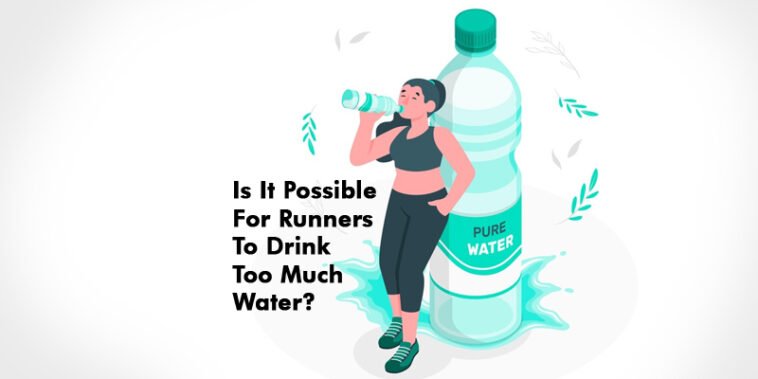Hyponatremia is otherwise called ‘water inebriation’ and is basically something contrary to drying out, with the subject having contained a lot of liquid considerably. For most amateur to moderate sprinters, parchedness will be the principle concern instead of the issue of drinking excessively. Be that as it may, hyponatremia can be an undeniable danger for a little minority of sprinters running significant distance occasions.
The accompanying stunning record is nevertheless one of an expanding pattern in high-intensity games where members, particularly ladies, are experiencing indications going sickness to spewing, breakdown, seizures, hospitalization and even demise:
Recommended reading: 9 Outstanding Health Benefits of Apples
Approaching the 22-mile characteristic of 2002’s Boston Marathon, 28-year-old Cynthia Lucero is beginning to battle. For everything except the last 15min, she had felt fine. Cautious to remain as hydrated as conceivable, she had strolled while she drank at each guide station, and keeping in mind that others battled, she had taken Boston’s notorious Heartbreak Hill in her step. However, in the time that it took her to run the following 3km, Cynthia Lucero’s life disentangled.
She was strolling at the 22-mile mark, felt sick, and told a companion she should be got dried out. The companion looked as the walk went to a wobble at that point in the following breath, and she imploded. Going into seizure, stressed observers required a rescue vehicle; however, when she showed up at an emergency clinic, Cynthia Lucero was in a state of insensibility. After two days, she passed on. When was running invented
What is hyponatremia?
As indicated by New Zealand’s Dr Dale Speedy, who is the pioneer in research regarding the matter, hyponatremia is a bringing down of sodium fixation in the blood because of water over-burden.’
Hyponatremia ‘is a bringing down of sodium focus in the blood because of water over-burden.’
– Dr Dale Speedy
He clarifies that what happens is that individuals experience the ill effects of a ‘waterlogging of the cells and mind’. This is basically why individuals with hyponatremia endure disarray, and in extreme cases, seizures.
Recommended reading: Benefits of Kegel Exercises for Men
Fast started examining hyponatremia as an immediate consequence of his association as clinical head of the Ironman New Zealand marathon during the mid-1990s. In 1997 he put the whole field through clinical screening and tracked down that 18% of the finishers were hyponatremic, despite the fact that they showed no significant manifestations. Be that as it may, an aggregate of 16 individuals wound up in clinic!
What causes hyponatremia in sprinters?
Studies demonstrate water over-burden and a sodium focus situation as the chief reason for hyponatremia. The one who kicked the bucket in the Chicago Marathon in 2002 is accounted for to have tanked, ‘gallons and gallons of water day by day,’ in the fourteen days preceding the race. In his Ironman examines, Speedy went over some hyponatremia situations where competitors had flushed as much as 23 liters (6.08 gallons) of liquid during the race.
Instructions to stay away from hyponatremia
The way to stay away from hyponatremia is supplanting liquids at a similar rate as they are being lost, and afterwards adjusting the weakening of the body’s sodium content by supplanting it with a drink containing sodium. A great many people will on normal use between 500ml (16.9oz) and 1000ml (33.8oz) of liquid an hour when working out.
Recommended reading: Is Homeopathy Medicine for Headaches Effective?
Who is most in danger from hyponatremia?
Female perseverance competitors are viewed as the most in danger since they sweat not as much as men because of a more modest bulk and lower digestion, so their liquid necessities are not as much concerning men.
All in all, notwithstanding, hyponatremia has all the earmarks of being a condition related generally with individuals who are seeking periods longer than four hours. In the 2002 San Diego Marathon, an investigation of sprinters uncovered no hyponatremia case completed in under four hours. How this affects sprinters is those most in danger are mid-pack long-distance runners and ultra-distance competitors, particularly ladies, since they really require less liquids than men.
Recommended reading: Role of Exercise in a weight loss program
How would I perceive hyponatremia?
The issue with hyponatremia is that the indications are very much like parchedness when the sprinter is truth be told the specific inverse. In the 2002 Houston Marathon, eight-time long-distance runner Kathy Schatte was one of four individuals who endured hyponatremia; however it was assumed she was really dried out, with practically unfortunate outcomes.
The issue with hyponatremia is that the side effects are very much like parchedness…
Schatte had burned-through a lot of liquid both previously and during the occasion. In the reasonable conditions, she had taken in undeniably more than her body required and completed the race enduring extreme expanding in fingers and hands (essential water inebriation), serious issues and retching. Assumed dried out, she was put on an intravenous trickle, which promptly sent her into a seizure and, in the long run into a state of extreme lethargy from which she didn’t wake for two days.
Recommended reading: Benefits of Skipping Rope workout
Specialists said they had removed 8 liters of liquid from her and that the liquid had got into her lungs. It was an additional three days until her sodium levels were considered safe for her to be delivered and three weeks before she could remain conscious long enough to go to work.
The early admonition indications of hyponatremia are frequently unobtrusive and might be like parchedness, with queasiness, muscle cramps, bewilderment, slurred discourse and disarray. However, in an article in Sports Medicine Digest, Dr E. Randy Eichner said side effects more explicit to hyponatremia were: ‘awful cerebral pain, retching, bulging, puffiness from water maintenance (shoes tight, rings tight, wristband tight), disarray, and seizure.’
This post was created with our nice and easy submission form. Create your post!




